
 Flash News
Flash News
Ndahet nga jeta tragjikisht në moshën 28-vjeçare ylli i Liverpool, Diogo Jota
Posta e mëngjesit/ Me 2 rreshta: Çfarë pati rëndësi dje në Shqipëri
Ceno Klosi with over 800 stolen votes, Balluku finds the reason is the tiredness of the counters
"Fast & Furious" in the former Block, police chase an Audi Q8, 4 cars collide
Car hits two tourists on a motorcycle in Fushe Arrëz, one of them dies
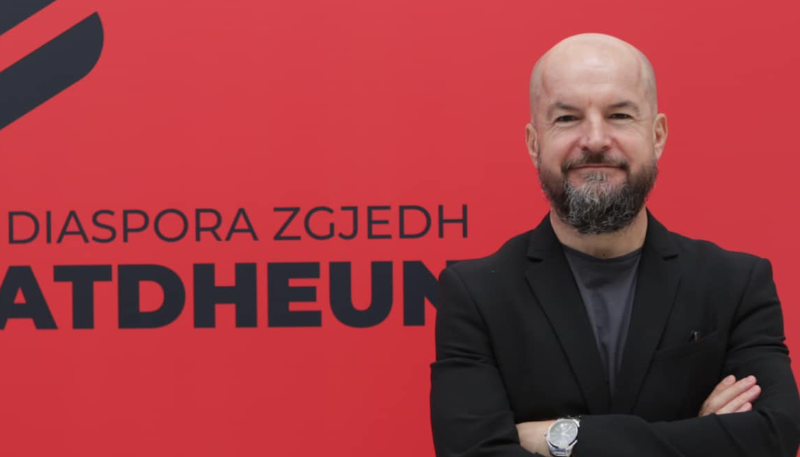
Alfred Lela
In the third interview of former Deputy Prime Minister Ahmetaj, one is confronted with helplessness. Not with the question "What is happening?" but "Who are these people?". Who is Edi Rama and those around him, and why has this circle, as corrupt as it is, drowned Albania in betrayal?
In the desolate territory around Edi Rama, there are subordinates, needy sycophants, soldiers of greed, and people afraid of him but not loyal. Loyal is someone who believes in your idea and your strength to materialize that idea. This is a big difference from the serf, who has no idea or strength, not even to believe in someone else's idea.
This makes Edi Rama calm when he abandons his own, especially when they refuse to offer him the ultimate service: to sacrifice themselves so that his idea of power can move forward. Arben Ahmetaj was put in the crosshairs of the Prime Minister's attack also because he was not willing to put his head in the guillotine and serve a few years in prison. Rama's expression 'those who disrupt the unity of the party should screw themselves,' should be read as "those who are not ready to sacrifice themselves for me...".
Ahmetaj, every time he appears - or doesn't appear - serves as a reminder that even an egomaniacal autocrat has limited power - he cannot beat individual freedom.
This is a premise of power, both for Ahmetaj and for a part of the public, but it is powerlessness in the face of resistance to evil, which Rama and his circle represent.
This powerlessness stems mainly from the impossibility of the drama to resolve the conflict and turn it into a tragedy. In the Rama-Ahemtaj case, the conflict is not the clash but the political reality that this confrontation reveals. Usually, events are resolved by degrading or through a tragic element. The first case creates comedy and the second tragedy. The great tragedians, from the ancient Greeks to Shakespeare, have resolved the conflict through cruel murder. Such grand conspiracies in fiction and life, such as Caesar or Trujillo, are not resolved solo. Therefore, co-conspirators are needed. Brutus, alone or with just Cassius, could not have killed Caesar. He relied on a circle of senators, military men, and many others, who later formed the army to battle with the other side. What Arben Ahmetaj likely does not understand, and what makes him powerless, is his solo role in the conspiracy. So, he is in an impossible plot.
Unconsciously - or not - during the interview for "Çim Peka Live," he made fluid and virtual alliances, both with Fatmir Xhafaj, with the 'socialists' as a group facing Edi Rama, with Saimir Tahiri or even with Erion Veliaj. Ahmetaj's political role may be precisely this: as the 'first repentant,' he must act as if he does not allow himself to be the last. The first question that he - or anyone among the exponents of the government or the SP - can ask is: whose turn is it? Is he ready to sacrifice himself or resist? How far is he prepared to go for his freedom, but also for society? Is he loyal to Rama or a servant, and how is he being hit, as of the first or second type?
What Ahmetaj announced on live TV is true: Rama 'has lost four electoral districts.' Still, as a fact in itself, as isolated episodes of corruption, the MPs and ministers are nothing more than corrupt senior officials and political people who 'do stuff behind Rama's back.' In the other case, of a collaboration with the justice, as repentant and as a group of repentants, it is not Rama who takes their heads, but it is them who behead his.
Arben Ahmetaj expressed some regret for Saimir Tahiri last night, but it was too late. Five ministers who are against the plan of cannabization, that is, the criminalization of the country and society, who rebel publicly, would be a political movement. The fact that they bowed down and served, abandoning the idea for the man who had the wrong idea, becomes their preordained fate. Saimir Tahiri went to prison, Arben Ahmetaj is in exile, Fatmir Xhafaj was fired, and so was Ditmir Bushati.
Arben Ahmetaj's solo plot is something to watch and enjoy as a spectator, but without becoming tragic, without bringing others into it, it is doomed to fail.
No Brutus, alone, can kill Caesar.
Latest news


Cocaine trafficking network in Greece, including Albanians, uncovered
2025-07-03 10:10:12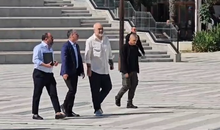


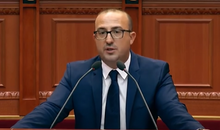
Korreshi: Election manipulation began long before the voting date
2025-07-03 09:39:13
Arrest of Greek customs officer 'paralyzes' vehicle traffic at Qafë Botë
2025-07-03 09:28:41
After Tirana and Fier, the boxes are opened in Durrës today
2025-07-03 09:21:10
Enea Mihaj transfers to the USA, will play as an opponent of Messi and Uzun
2025-07-03 09:10:04

Foreign exchange, the rate at which foreign currencies are sold and bought
2025-07-03 08:53:50
Index, Albania has the worst quality of life in Europe
2025-07-03 08:48:10

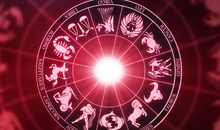
Horoscope, what do the stars have in store for you today?
2025-07-03 08:17:05
Clear weather and high temperatures, here's the forecast for this Thursday
2025-07-03 08:00:37
Posta e mëngjesit/ Me 2 rreshta: Çfarë pati rëndësi dje në Shqipëri
2025-07-03 07:46:48




Lufta në Gaza/ Pse Netanyahu do vetëm një armëpushim 60-ditor, jo të përhershëm?
2025-07-02 21:56:08
US suspends some military aid to Ukraine
2025-07-02 21:40:55



Methadone shortage, users return to heroin: We steal to buy it
2025-07-02 20:57:35
Government enters oil market, Rama: New price for consumers
2025-07-02 20:43:30
WHO calls for 50% price hike for tobacco, alcohol and sugary drinks
2025-07-02 20:41:53







Israel agrees to 60-day ceasefire in Gaza, but many unanswered questions remain
2025-07-02 18:35:27
The weather in Germany is going "crazy", temperatures reach 40°C
2025-07-02 18:22:21

"Fast & Furious" in the former Block, police chase an Audi Q8, 4 cars collide
2025-07-02 17:59:25
"Birth on a tourist visa? US Embassy warns Albanians: This is prohibited!"
2025-07-02 17:48:16


BIRN: Fier recount reveals vote trafficking within open political party lists
2025-07-02 16:57:19

CEO and former director of 'Bankers Petroleum' arrested in Fier
2025-07-02 16:40:42
Car hits two tourists on a motorcycle in Fushe Arrëz, one of them dies
2025-07-02 16:33:23



Fire at the Elbasan Incinerator Landfill, Prosecution Launches Investigations
2025-07-02 15:34:54
What you need to know if you travel to a country with active volcanoes
2025-07-02 15:33:03



EU proposes 90% reduction in greenhouse gases by 2040
2025-07-02 14:50:23
Europe is burning from the heat / Italy and France are on maximum alert
2025-07-02 14:36:52

Moscow's contradictory statements: Is the friendship with Vučić breaking down?
2025-07-02 14:21:05
'I lost my battle': Sea warming is killing fishing in Albania
2025-07-02 14:08:35
Sekretet kimike që ndihmojnë në mbajtjen e mjaltit të freskët për kaq gjatë
2025-07-02 14:01:26

Denmark makes historic decision to make military service mandatory for women
2025-07-02 13:44:33
The appeal of the GJKKO leaves former judge Pajtime Fetahu in prison
2025-07-02 13:30:20
Productivity losses could reduce GDP by 1.3% as a result of extreme heat
2025-07-02 13:21:04
He abused his minor daughter, Zamir Meta is left in prison
2025-07-02 13:04:04

Waste burning in Elbasan, Alizoti: They are poisoning people and stealing money
2025-07-02 12:48:39
Civil disobedience continues in Serbia, dozens of people detained
2025-07-02 12:40:32
Rama's government was born under the sign of garbage and will end like this
2025-07-02 12:28:09
Water prices increase in the municipalities of the Elbasan region
2025-07-02 12:13:38
Civil disobedience continues in Serbia, what is happening in Belgrade?
2025-07-02 12:07:44
Serious accident in Thumanë, one dead, 3 injured
2025-07-02 11:54:42
Durrës Court suspends the director of Pre-University Education from duty
2025-07-02 11:49:27
Plenary session on Thursday, what is expected to be discussed
2025-07-02 11:36:43
Europe is burning from heat waves/ What is the 'thermal dome' phenomenon?
2025-07-02 11:26:25
Wanted by Italy for murder, 45-year-old arrested in Vlora
2025-07-02 11:19:31
Fire situation, 28 fires reported in 24 hours, 2 still active
2025-07-02 11:13:20
"Buka" file, preliminary hearing for Ahmetaj postponed to July 17
2025-07-02 11:03:30


Baçi: Belinda Balluku and Ceno Klosi, the most dangerous "gangs" in Fier
2025-07-02 10:32:09
Zamir Meta, suspected of sexually abusing his daughter, arrives in court
2025-07-02 10:21:33

Trump: Israel has agreed to a 60-day ceasefire in Gaza
2025-07-02 10:01:55
Fire continues at Elbasan landfill
2025-07-02 09:51:13

Dates to note during July, important events will occur
2025-07-02 09:31:45
The hearing for Jorgo Goro's claim is postponed
2025-07-02 09:24:19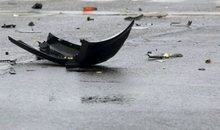



Foreign exchange, the rate at which foreign currencies are sold and bought
2025-07-02 08:42:31

52% of pensioners did not receive full pension in 2024
2025-07-02 08:27:18
Horoscope, what do the stars have in store for you today?
2025-07-02 08:13:36
Hot weather, Wednesday brings high temperatures
2025-07-02 07:59:16
Morning Post/ In 2 lines: What mattered yesterday in Albania
2025-07-02 07:46:15
Heatwave sweeps across Europe, Spain and England record hottest June ever
2025-07-01 22:57:41
